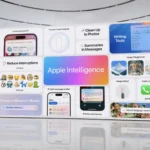

Why Human Skills Are Crucial for the Successful Integration of AI?
Introduction
Artificial intelligence (AI) has rapidly transformed industries, reshaping the way businesses operate and how individuals interact with technology. However, despite the immense potential of AI, its successful integration into various sectors hinges on the development and application of human skills. As AI continues to evolve, human skills such as critical thinking, creativity, empathy, and ethical judgment will become increasingly essential in ensuring that AI technologies are harnessed effectively and responsibly.
The Complementary Role of Human Skills and AI

AI excels at processing vast amounts of data, identifying patterns, and making decisions based on algorithms. However, it lacks the nuanced understanding, context-awareness, and moral compass human beings possess. This gap highlights the need for a synergy between human skills and AI capabilities. While AI can handle repetitive tasks, automate processes, and provide data-driven insights, human skills are crucial for interpreting these insights, making ethical decisions, and driving innovation.
1. Critical Thinking and Problem-Solving
AI systems are designed to solve specific problems based on predefined criteria. However, they can struggle with complex, multifaceted problems that require a deep understanding of context, nuance, and potential unintended consequences. Human critical thinking and problem-solving skills are essential in these scenarios. Professionals can analyze AI-generated data, question the assumptions behind AI algorithms, and ensure that the solutions provided align with broader organizational goals and societal values.
2. Creativity and Innovation
AI algorithms can generate content, designs, and even music, but they cannot think creatively in the way humans do. Creativity involves connecting disparate ideas, imagining new possibilities, and taking risks—inherently human qualities. As AI takes over routine tasks, the demand for human creativity will increase. Innovators will be needed to design AI systems, develop new applications, and explore uncharted territories where AI has yet to tread.
3. Emotional Intelligence and Empathy
While AI can analyze sentiment and recognize patterns in human behavior, it cannot genuinely understand emotions or demonstrate empathy. Emotional intelligence is crucial in roles that involve human interaction, such as customer service, healthcare, and leadership. Professionals with high emotional intelligence can use AI tools to enhance their work but will still be needed to navigate complex social interactions, resolve conflicts, and provide personalized care.
4. Ethical Judgment and Responsibility
The ethical implications of AI are a major concern. AI systems can perpetuate biases, make decisions that affect people’s lives, and even be used in harmful ways. Human oversight is essential to ensure that AI is developed and deployed responsibly. Ethical judgment, a uniquely human skill, is necessary to evaluate the impact of AI on society, establish guidelines for its use, and hold organizations accountable for their AI-related actions.
Education and Skill Development for the AI Era
As AI becomes more prevalent, there is a growing need for education and training programs that equip individuals with the skills needed to thrive in an AI-driven world. Traditional educational models may need to be rethought to emphasize interdisciplinary learning, combining technical knowledge with critical thinking, creativity, and ethical considerations.
1. Interdisciplinary Education
In the AI era, interdisciplinary education will be key. Professionals will need to understand both the technical aspects of AI and the broader context in which it operates. For example, a data scientist might need to learn about ethics and social sciences to understand the impact of AI on society, while a business leader might need to gain technical literacy to make informed decisions about AI implementation.
2. Lifelong Learning
The rapid pace of technological change means that professionals will need to engage in lifelong learning to stay relevant. Upskilling and reskilling will become the norm as new AI technologies emerge and the job market evolves. Educational institutions and employers will need to provide opportunities for continuous learning, helping individuals develop both technical and human skills.
3. Emphasis on Soft Skills
While technical skills are important, there will be an increased emphasis on soft skills—such as communication, collaboration, and adaptability. These skills will enable individuals to work effectively with AI tools, collaborate with others across disciplines, and navigate the complexities of a rapidly changing world.
The Future of Work in an AI-Driven World
The integration of AI into the workplace will undoubtedly change the nature of work, but it will not render human workers obsolete. Instead, the roles of human workers will evolve, with a greater focus on tasks that require uniquely human skills. AI will handle routine tasks, while humans will take on more strategic, creative, and relational roles.
1. New Job Opportunities
AI is expected to create new job opportunities in fields such as AI ethics, AI training, and AI-human collaboration. These roles will require a combination of technical knowledge and human skills, such as ethical reasoning, creative problem-solving, and effective communication.
2. Redefining Existing Roles
Many existing roles will be redefined by AI. For example, in healthcare, AI can assist with diagnostics and treatment planning, but human doctors and nurses will still be needed to provide patient care and make complex decisions. In marketing, AI can analyze consumer data, but human marketers will be needed to craft compelling narratives and connect with audiences on an emotional level.
3. The Importance of Human-AI Collaboration
The future of work will be characterized by human-AI collaboration. Rather than competing with AI, professionals will work alongside AI systems, leveraging their strengths to enhance their capabilities. This collaboration will require a deep understanding of both AI technologies and human skills, as well as the ability to navigate the ethical and social challenges that arise.
Conclusion
As AI continues to transform industries, the importance of human skills will only grow. Critical thinking, creativity, emotional intelligence, and ethical judgment are all essential for the successful uptake of AI. By investing in education and skill development, society can ensure that individuals are prepared to thrive in an AI-driven world. The future of AI is not about replacing humans, but about augmenting human capabilities, creating a world where technology and humanity work together to achieve greater outcomes.
Sources:
- Forbes – The Importance Of Human Skills In A World Of AI
- Harvard Business Review – How to Develop Human Skills for an AI Workplace
- World Economic Forum – The Skills You Need for the Future of Work
- McKinsey – Preparing for the Future of Work
by TechTaker










Post Comment